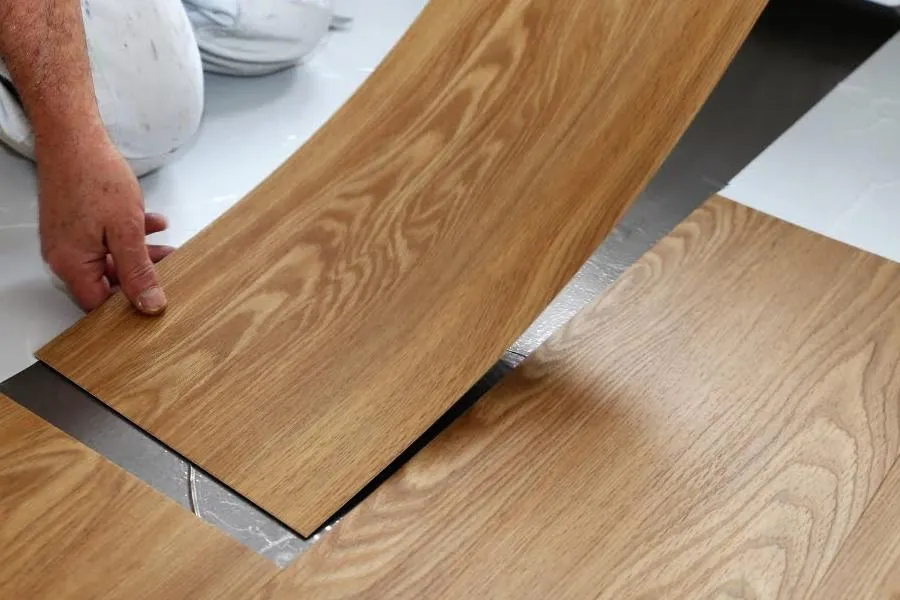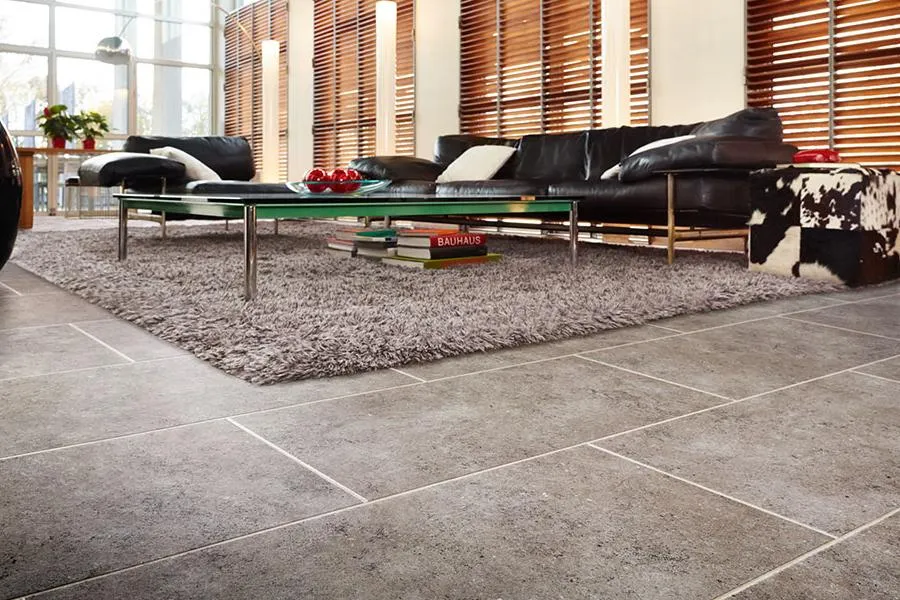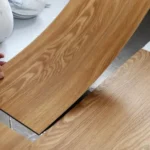If you’re planning a home flooring project and want a stylish yet budget-friendly option, vinyl flooring is likely on your radar. Known for its water resistance, durability, and impressive look-alike finishes of wood or stone, vinyl flooring has become a go-to for many homeowners. But how much does it actually cost from start to finish?
In this guide, we’ll break down the cost of vinyl flooring and installation, explore the different types of vinyl, and highlight key price factors you should consider before making a decision.
Why Homeowners Choose Vinyl Flooring
Vinyl flooring stands out in today’s market for combining affordability with functionality. It’s available in various formats—such as sheet vinyl, vinyl tiles, and luxury vinyl planks—that suit different aesthetic preferences and performance needs. Whether you’re remodeling a bathroom, kitchen, or entire home, vinyl is an excellent choice due to its waterproof features, ease of installation, and wide selection of styles.
One of the biggest advantages is that vinyl can convincingly mimic the appearance of more expensive materials like hardwood or ceramic tile, offering the visual appeal without the hefty price tag or ongoing maintenance. Plus, it’s softer underfoot than other hard-surface options, making it more comfortable for standing over long periods.
Types of Vinyl Flooring and What They Cost
Vinyl flooring comes in several styles, and your choice will directly impact both your budget and installation approach. Here’s a breakdown of the most common types:
Sheet Vinyl is one of the most affordable options. It comes in large rolls that are cut to size, ideal for covering larger areas with fewer seams. You can expect to pay between $0.50 and $2.50 per square foot for materials alone, while professional installation adds another $1.50 to $3.50 per square foot.

Luxury Vinyl Plank (LVP) offers a high-end wood look and is a popular choice in living rooms and bedrooms. Prices for materials typically range from $2.00 to $5.00 per square foot, and installation runs from $2.00 to $4.00 per square foot, depending on labor costs and room layout.

Luxury Vinyl Tile (LVT) mimics stone or ceramic tile and is especially popular in kitchens and bathrooms. Expect to pay around $1.50 to $4.00 per square foot for the tiles, with installation costs averaging $2.00 to $4.00 per square foot.

High-End Luxury Vinyl with textured surfaces and ultra-realistic visuals may cost $5.00 to $7.00 per square foot, and installation could push the total up to $12.00 per square foot for complex jobs.
This table summarizes the average cost per square foot:
| Type of Vinyl Flooring | Material Cost (per sq. ft.) | Installed Cost (per sq. ft.) |
| Sheet Vinyl | $0.50 – $2.50 | $2.00 – $6.00 |
| Vinyl Plank (LVP) | $2.00 – $5.00 | $4.00 – $9.00 |
| Vinyl Tile (LVT) | $1.50 – $4.00 | $3.50 – $8.00 |
| Luxury Vinyl Flooring | $5.00 – $7.00 | $7.00 – $12.00 |
What Affects Vinyl Flooring Installation Costs?
The installation cost for vinyl flooring varies not just by the type of vinyl but also by the condition of your existing floors and the complexity of the space. On average, installation will add $1.50 to $4.00 per square foot, but a few important factors can raise or lower this figure:
- Subfloor Condition: If your subfloor is uneven, damaged, or requires moisture-proofing, you’ll likely need prep work that adds $1–$3 per square foot.
- Old Flooring Removal: Tearing out old carpet, tile, or laminate could cost an extra $1.00 to $2.00 per square foot, depending on the material and disposal fees.
- Room Layout: Installation in rooms with lots of corners, doorways, or built-in cabinetry can increase labor time and cost.
- Adhesive vs. Click-Lock: Glue-down vinyl typically takes longer to install than click-lock planks, which snap together and float over the subfloor.
If you’re comfortable with tools and want to cut costs, many vinyl products—especially click-lock planks—are DIY-friendly. Just make sure you have proper tools and follow manufacturer instructions closely.
Additional Costs to Budget For
While material and labor are the two main costs, don’t overlook these other common expenses:
- Underlayment: Some types of vinyl flooring require a separate underlayment for cushioning or soundproofing. This adds around $0.50 to $1.00 per square foot.
- Trims and Molding: Finishing touches like baseboards, quarter-round molding, or transition strips can add up to $1.00 to $3.00 per linear foot.
- Waste and Overage: It’s standard practice to purchase an extra 5–10% of material to account for cuts, patterns, and errors.
- Delivery and Tools: Some retailers charge for delivery or special handling. If you’re doing it yourself, you might also need to buy or rent tools like a vinyl cutter, spacers, or a tapping block.
Sample Cost Breakdown for a 500 Sq. Ft. Project
Let’s walk through a rough budget example. Say you’re installing mid-range luxury vinyl plank in a 500-square-foot space.
| Item | Estimated Cost Range |
| Vinyl Plank Material | $1,000 – $2,500 |
| Installation Labor | $1,000 – $2,000 |
| Subfloor Preparation (if needed) | $250 – $500 |
| Underlayment + Trims | $150 – $400 |
| Total Project Estimate | $2,400 – $5,400 |
The wide range reflects product quality, installer fees, and regional pricing. Urban areas often have higher labor costs, while rural installers may charge less.
Is Vinyl Flooring a Good Investment?
From a cost-benefit perspective, vinyl flooring delivers exceptional value. Its low upfront price, simple upkeep, and resistance to water and stains make it an excellent long-term investment—especially for families or high-traffic areas. Modern vinyl also holds up well to wear and tear, with many manufacturers offering warranties of 10–20 years.
Additionally, vinyl’s appeal in real estate markets is growing. While it may not boost resale value like hardwood, updated, stylish vinyl flooring is still a strong selling point in rental properties or starter homes.
Final Thoughts
Understanding the cost of vinyl flooring and installation helps you make smarter choices when upgrading your home. While sheet vinyl offers an ultra-budget solution, luxury vinyl tile and plank provide a more premium look while remaining affordable. Whether you’re hiring a pro or planning a DIY project, knowing the full scope of expenses—including materials, labor, prep, and finishing—can save you from unpleasant surprises.
By planning ahead and choosing the right materials, you can achieve a high-end look without a high-end price tag. Vinyl flooring offers beauty, function, and value—making it one of the best flooring options available today.

